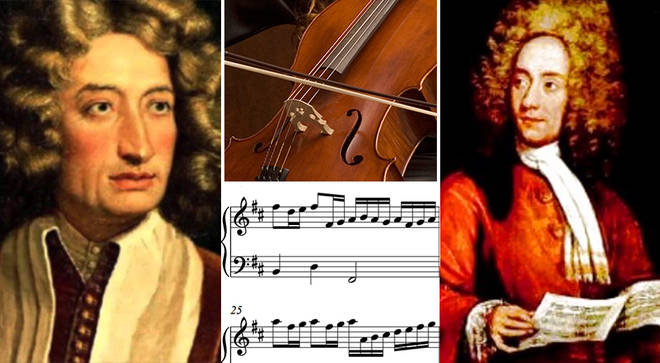
From Pachelbel and his Canon, to Orff and his Carmina, here are the most iconic “one-hit wonders” of the classical music world.
Some of classical music’s greatest contributors – think of the biggies, , and – wrote countless pages of music, that we still play and enjoy today.
But some composers haven’t quite enjoyed the same full-blown, century-crossing success. Here are, without further ado, the most famous and beloved one-hit wonder composers in classical music, and their most famous piece.
Pachelbel – Canon
Johann is the original one-hit wonder guy. While he wrote lots of music in the 17th century, only his remains popular today – especially at weddings.
The canon is grounded by a basso continuo line, played by one poor cellist who repeats eight notes throughout the entire piece with no variation. Musically speaking, it’s not super interesting for musicians. But it remains a fundamental work from the era and has even .
'Pachelbel's Nightmare': sequel to Pachelbel's Canon in DYouTuber musicalbasics made a sequel to one of the most famous pieces of all time.Mascagni – Intermezzo (Cavalleria Rusticana)
The Italian composer Pietro was most noted for his operas – but it’s his first masterpiece Cavalleria Rusticana, written in 1890, that overshadows all his later works. Its best-known tune is the orchestral ‘Intermezzo’, an indulgent, sumptuous melody that speaks of a summer under the sun in Sicily.
Carl Orff – O Fortuna (Carmina Burana)
hit the jackpot when he came across the Carmina Burana, a collection of 13th-century songs and poems, and decided to set them all to music. Of them, the 20th-century German’s setting of ‘O Fortuna’ has gone above and beyond surviving the test of time, its stately intro lending itself to countless film and TV themes – most .
O, Fortuna (Cello Craziness)Credit: YouTube / James McGonigleLehár – The Merry Widow
A joyous fanfare opening, the ‘Vilja Song’ and the titular ‘Waltz’ – The Merry Widow is packed with great melodies. And its composer, Austro-Hungarian , is recognised as one of the most significant writers of operetta. But history, as it does, has only really remembered him for one of them.
Smetana – ‘Vltava’ (The Moldau), Má Vlast
‘Vltava’ from Czech composer Bedrich ’s symphonic poem Má Vlast is an evocative musical painting of the rolling river that passes through Prague. Also known as ‘The Moldau’, the movement is one passage in a monumental achievement by the composer. But its central, sweeping melody has taken the cake as by far the best-known tune in Smetana’s musical stock.
Giordani – Andrea Chénier
Andrea Chénier is a cracker of an opera, but very much all Italian composer Umberto Giordani is known for. The pinnacle aria ‘La mamma morta’, sung exquisitely by , features in a key scene in the movie Philadelphia where Tom Hanks’ character delivers an affecting monologue about how Callas’ soprano notes get him all teary.
Pergolesi – Stabat Mater
Near the end of his tragically short life, composed his celebrated ‘Stabat Mater’, a sacred piece opening with two voices which occasionally overlap in pitch, creating a temporary and haunting dissonance. While famous in the 18th century as a comic-opera composer, Pergolesi is now known for little else than this eye-wateringly beautiful setting.
Charpentier – Te Deum
If this French Baroque composer were to see how his stately, polyphonic motet is being used today, he might find his jaw somewhere around the region of the floor.
‘Te Deum’, Marc-Antoine Charpentier’s brassy, warlike , was supposedly premiered in celebration of a French battle victory in 1692. But today, it is most recognisably the , the world’s international song contestant. And it …
Dukas – Sorcerer’s Apprentice
Paul Dukas is pretty much only known these days for – but, certainly in our books, it measures up to an entire catalogue. The enchanting work for orchestra was made famous by Disney’s Fantasia, and is the only piece of music that featured in both the 1940 and 2000 versions. In the remake, Dukas’ music plays while Mickey Mouse, as a sorcerer’s apprentice, battles a living army of broomsticks.
Gruber – Silent Night
A beloved Christmas melody, heard every year in churches, cathedrals and on doorsteps all over the world… but who has heard of any of the composer’s other work?
So the story goes, Franz Xaver Gruber’s classic carol was first performed on Eve in 1818 – but, in the end rather poignantly, on the guitar, because the church’s organ was broken. Some things work out for the best...


No comments:
Post a Comment